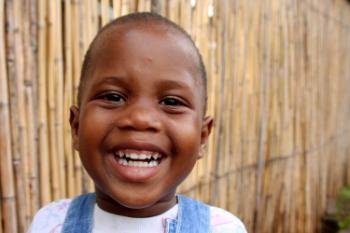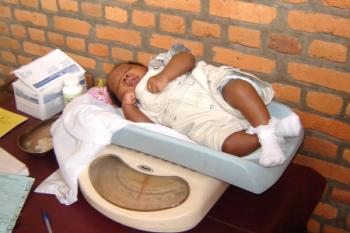Peace has returned to Burundi – but the process of recovery is slow

Burundi’s capital city of Bujumbura has a population of over 800,000. Located on the shores of Lake Tanganyika, it is home to the country’s main port, where coffee, tea and cotton are exported. During Burundi’s civil war, Bujumbura was often the scene of ethnic clashes between the majority Hutu rebels and the ruling Tutsi minority. Although Burundi’s twelve-year civil war ended for good in 2009 and the country is now returning to a peaceful state, it still has its share of social problems to deal with. In 2010, after a difficult electoral period, there was an escalation of political killings and violence that reached its height in mid-2011. Essentially, this means that the youngest generation of Burundians are growing up in an environment that continues to be fraught with insecurity and violence.
In the United Nations Human Development Index, which ranks countries according to factors including health, education, and income, Burundi comes 185th out of 187 countries, making it one of the three least-developed countries in the world – and one of the hardest countries for a child to be growing up in.
In Bujumbura, thousands of children live on the streets with no one looking after them and without protection. These children are incredibly vulnerable to violence and sexual exploitation. In addition, many of them resort to taking drugs to numb the hunger pangs and the difficulties they face each day. The prevalence of HIV/AIDS amongst homeless children and adults is also very high.
Despite recent progress regarding access to anti-retroviral treatment, only around 57 per cent of affected women receive treatment. When it comes to preventing mother-to-child transmission, the number is even lower: only eleven per cent of HIV-positive pregnant women receive treatment. Education on preventing HIV infection is severely lacking. Many religious leaders in Burundi oppose condom use for fear that it will promote debauchery. Condom use amongst high-risk groups such as sex workers is only around 25 per cent.
An urgent need to support families
As of 2004, we have expanded our efforts to reach out to vulnerable families in the capital city through the SOS Family Strengthening Programme. We reach out to the local community, ensuring that children have access to essential educational, nutritional and health services, and we support parents in protecting and caring for their children, for example by offering guidance on income-generating skills and parenting practices. We provide counselling and psychological support to both children and their caregivers, and we assist families affected by HIV/AIDS.
The SOS Medical Centre attends to around 22,000 patients a year, providing basic health care and treatment, operations, check-ups and preventive measures to members of the local community who may not otherwise be able to afford these services.
What we do in Bujumbura

For children from the region who are no longer able to live with their parents, 13 SOS families can provide a loving home for up to 130 children. In each family, the children live with their brothers and sisters, affectionately cared for by their SOS mother.
Around 150 children from both the children’s village and the neighbourhood attend the SOS Kindergarten, ensuring that children from SOS families make friends and are integrated into the local community from a young age. The SOS Hermann Gmeiner primary and secondary schools in Bujumbura are attended by over 1,000 pupils, making it a valuable educational institution in the region.
When young people who grew up in one of the SOS families feel ready to move out of the home in order to study or receive training, the SOS Youth Programme continues to support them as they make the transition into independent adulthood. The young adults live together, supervised and guided by a qualified SOS counsellor.